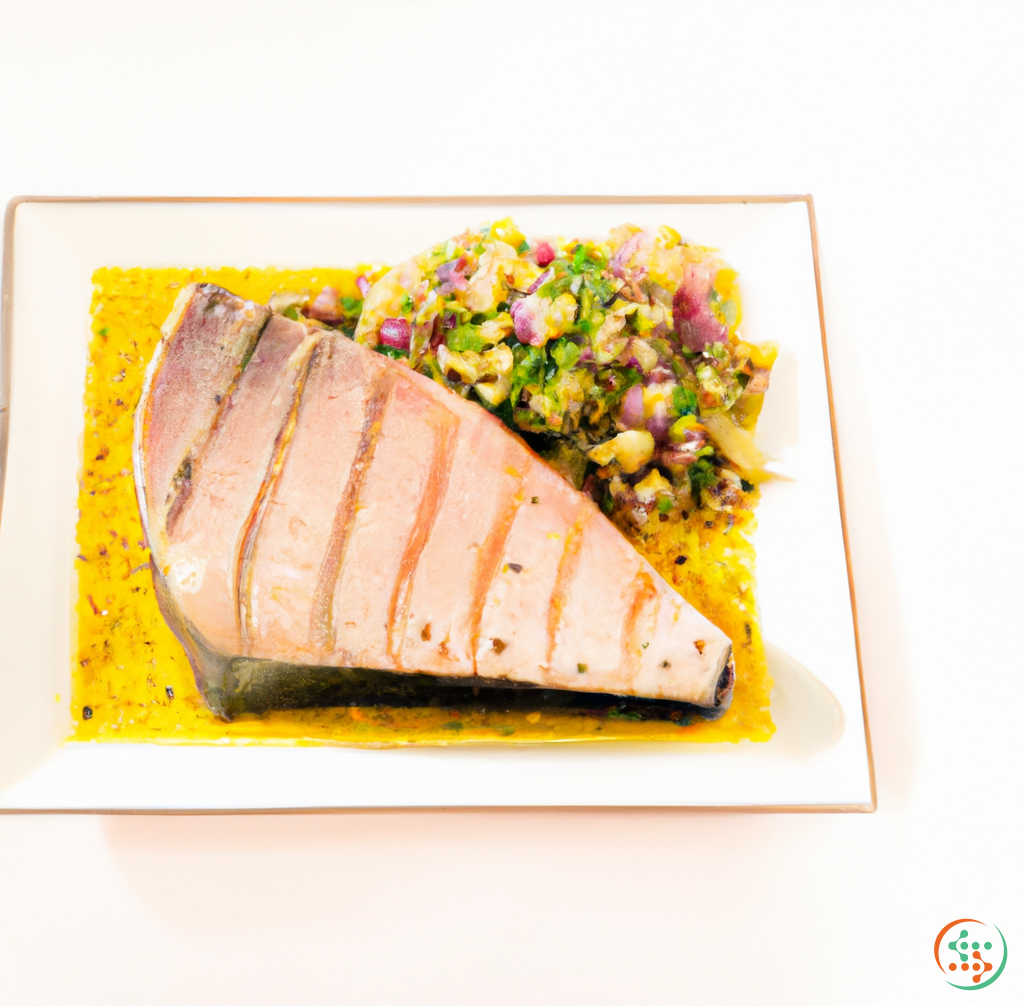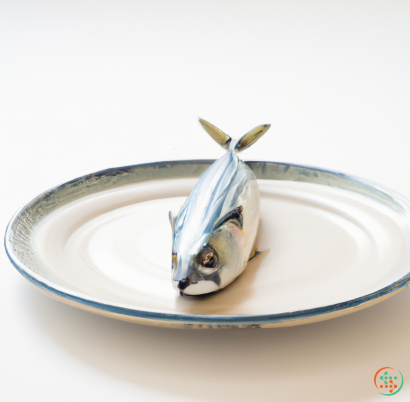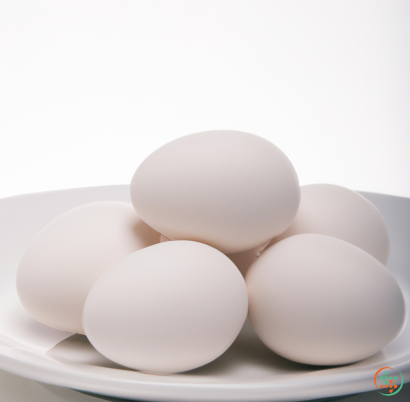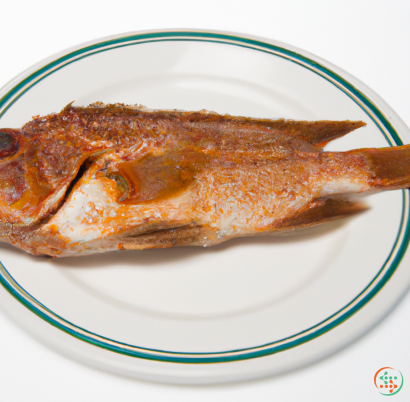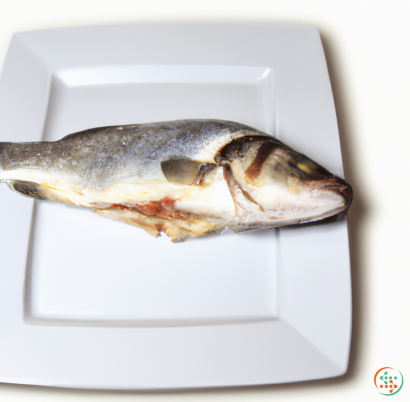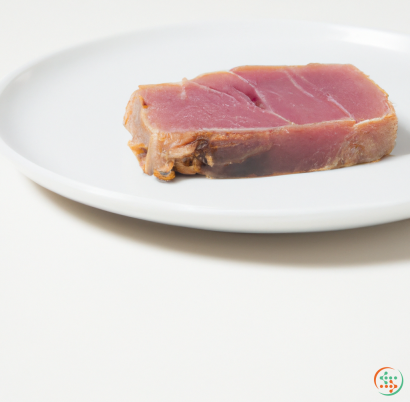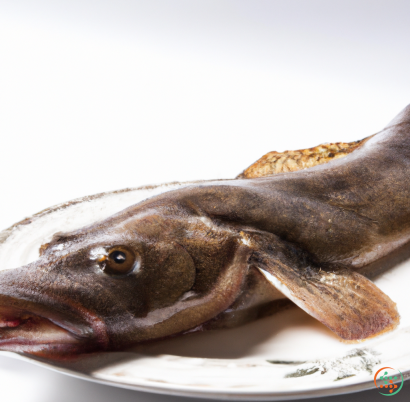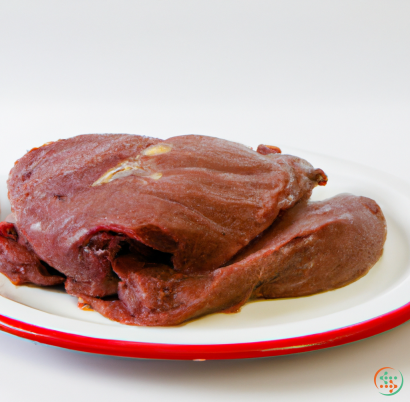Mahi-mahi
Mahi-mahi, also known as dolphinfish or Dorado, are a prized species of fish found in tropical and subtropical waters around the world. Despite its name, mahi-mahi is not related to dolphins; its name comes from the Hawaiian language and means “strong” or “tough.” It is a type of pelagic fish, meaning that it spends most of its lifetime in the open ocean rather than near the shore.
Mahi-mahi grow to be quite large — it's not uncommon to find specimens five feet in length and twenty-five pounds in weight. As such, they’re popular as a gamefish and sought after by anglers everywhere. Fishing enthusiasts enjoy catching mahi-mahi because they fight hard, jump high, and put up an admirable struggle when hooked. However, the fight isn’t the only reason that people flock to catch mahi-mahi: they’re a highly valued food fish, too.
Mahi-mahi are highly sought after for their fillets because they’re said to be among the tastiest of fish. Common recipes for mahi-mahi include grilling, baking, and broiling. Its texture and flavor make it a great addition to fish tacos, sandwiches, salads, and more. Its firm texture also makes it ideal for poaching, as it retains its shape and moist meat even when cooked in a liquid.
Mahi-mahi have several other qualities that make them attractive for fishing and for eating. It has a slick surface and bright colors, which combine to provide an exciting spectacle when caught. It is also one of the fastest-growing species of fish, meaning that the population replenishes at a rapid rate and overfishing is not a concern. Finally, mahi-mahi are migratory and are known to travel in schools, making them relatively easy to find.
Mahi-mahi is a great source of protein, vitamin B12, vitamin D, selenium, and phosphorus. It has a lower fat content than other types of fish, such as salmon, tuna, and catfish. It is also rich in amino acids, an essential component of a healthy diet. Because the fish has a mild taste, it is considered a versatile addition to many recipes, making it ideal for seafood lovers.
In addition to providing a healthy source of protein and essential vitamins, mahi-mahi has a long shelf life when frozen. This allows for a longer period of time to enjoy the fish’s flavor and texture without having to worry about spoilage.
Mahi-mahi is an essential part of many commercial fishing operations around the world. In the United States alone, over 100 million pounds of mahi-mahi is caught annually. It is considered a sustainable source of seafood and is certified by the Marine Stewardship Council. The highest quality mahi-mahi is usually caught and processed right away, as this ensures its maximum freshness.
Mahi-mahi is a popular seafood choice among chefs and seafood lovers, and its versatility makes it an excellent addition to a variety of dishes. From tacos to grilled fish — and everything in between — mahi-mahi is a great choice for any seafood meal. Plus, with its impressive fighting strength and stunning good looks, it's no wonder why it's such a favorite among anglers around the world.
In the ocean depths of tropical and subtropical waters, one of the most prized sportfish swim: the mahi-mahi, or common dolphinfish. Adored by anglers and cuisine fans alike, the mahi-mahi is not just a creature to be admired, but also a tasty and wholesome meal. But before achieving its end purpose on the dinner plate, it needs to be taken on an incredible journey. This is the journey of a mahi-mahi, from sea to plate.
Where It Starts
Mahi-mahi are highly migratory and are known for travelling long distances. They range from the Eastern Atlantic off Africa, throughout the Indo-Pacific, the Aegean Sea, and the Caribbean. A mature mahi-mahi can grow up to two metres in length, with adults being about a metre in length, and usually weighing between six to twenty kilograms. Generally, a healthy adult mahi-mahi lives four to five years, and can spawn up to 1.5 million eggs in one year.
The birth of a mahi-mahi highlights the differences between male and female; eggs are spawned by female and males fertilise them out of the water. The eggs then quickly sink to the ocean bed where they develop over a few days, with the larvae hatching within a few to several weeks.
Once the larvae hatch, they are transparent and extremely susceptible to predation. They grow rapidly, feeding and swimming thought the dusk and dawn hours for the next eight weeks and reaching a maximum length of up to nine centimetres. After this, they change from a larval to a juvenile form, and are now able to be distinguished as either a male or female.
From Juvenile to Adult
From here, the young mahi-mahi start to inhabit more deep waters, living off plankton, small fishes, squid and crabs. As with most fish species, each year’s environmental conditions influence the amount of growth in a mahi-mahi. They have the ability to grow to a metre in length in as little as eighteen months and continue to grow tomaturity, which they reach after two to five years.
Growth varies depending on the region, but studies suggest that larger mahi-mahis are found in deeper, cooler waters.Warmth, sunlight and plankton are few of the prime attributes of water that aid mahi-mahi growth. Juveniles are usually located close to the shoreline, whereas adults generally hunt further out, in the open ocean.
Mahi-mahi are able to live in multiple habitats and feed by pursuing schools of prey, consuming both fishes and Crustaceans. This ‘prey driven’ diet leads to a reliably high fat content, making it a nutritious meal for anyone looking for a protein-based option for dinner.
Hunting Habits and Fishing Practices
Mahi-mahi have evolved in an aggressive manner, meaning they are often overly eager when hunting prey. It also means they are highly susceptible to be caught by fishing gear. Due to the large populations present, mahi-mahi are available to be caught in any part of the globe. Some fishing practices, such as longline and drift nets, have been deemed unsustainable by conservation organisations, and can have devastating effects on marine life.
Fortunately, an emergence of more controlled and selective fishing practices have been seen to be successful methods of capturing quality mahi-mahi, such as using trolling or handlines. These newer fishing techniques minimise a ‘bycatch’and consequently reduce negative impacts on species other than mahi-mahi.
Although it is on the line between commercial exploitation and sustainable fishing, mahi-mahi fishing— when done in a responsible manner—can provide local communities with an important source of income, food security, and jobs.
From Hook to Platter
Now that a fisherman has caught his meal, it still needs to reach the desired destination of a dinner plate. To make sure the mahi-mahi maintains its quality and is presented in optimal condition, it has to be processed very quickly as soon as it is out of the water.
The first step is to check the skin colour, as mahi-mahi sizes range from 500 grams to larger specimens weighing over ten kilograms, which is approximately twenty times different in size. Larger sizes — compared to smaller ones — tend to have darker skins. It is also important to check the scales remain very white because low-quality scales show darker and greyish colours. Another factor is to check the muscular development and presence of yellow liquids. Mahi-mahi with good muscle development are fit for consumption.
After being checked for quality assurance, it is essential to maintain the temperature in order to preserve the nutrient levels in the fish. Hence, as soon as a fish is caught it is recommended to store in ice, as this helps to reduce the bacteria and preserve its texture, aroma, and taste. Subsequently, once the fish is frozen, it should be moved to a blast freezer, where air circulation is constantly controlled. This helps to create a longer-lasting and safer product.
At this point, the fish should be flavoured, sealed, and stored in the proper chamber temperatures. Once the mahi-mahi are frozen, they are ready to be packaged and sent to the distributor. The package should deliver not just the freshness of the fish but also detailed expiry dates to ensure the buyer is aware of the food safety regulations.
The Delicious Outcome
The journey of a mahi-mahi is a complex one, diversifying through oceanconditions, hunting habits and fishing practices. It is easy to see how a fish can take such an extended route before reaching a dinner plate. But with all of the links in the chain — from creation to packaging — if the process is nurtured correctly and with respect, the outcome can be delightful.
Mahi-mahi offer a flavoursome option for cuisine fans of all tastes. With few bones and a white, flaky flesh, it lends itself particularly well to dishes including sushi, tacos and grilled fillets. Grilling mahi-mahi yields a wide range of flavour and texture, which, when combined with complementary garnishes, makes for a unique culinary experience.
No matter which way it is prepared, mahi-mahi is an exquisite tasting fish. From its stunning colouring and majesty,to its delicate texture and flavour on the plate, it has garnered the affection of many around the globe and is beloved by anyone who has ever tried it. It almost goes without saying, but it’s no surprise that mahi-mahi is here to stay.
| Vitamin A | 0.062 mg | |
| Vitamin B1 | 0.02 mg | |
| Vitamin B2 | 0.09 mg | |
| Vitamin B3 | 0.00743 grams | |
| Vitamin B5 | 0.87 mg | |
| Vitamin B6 | 0.46 mg | |
| Vitamin B9 | 0.006 mg | |
| Vitamin B12 | 0.69 ug |
| Calcium | 0.019 grams |
Daily Value 1.3 g
|
| Iron | 0.00145 grams |
Daily Value 0.018 g
|
| Magnesium | 0.038 grams |
Daily Value 0.4 g
|
| Phosphorus | 0.183 grams |
Daily Value 1.25 g
|
| Potassium | 0.533 grams |
Daily Value 4.7 g
|
| Sodium | 0.113 grams |
Daily Value 2.3 g
|
| Zinc | 0.59 mg |
Daily Value 0.011 g
|
| Copper | 0.05 mg |
Daily Value 0.9 mg
|
| Manganese | 0.02 mg |
Daily Value 0.0023 g
|
| Selenium | 0.0468 mg |
Daily Value 0.055 mg
|
| Tryptophan | 0.266 grams | |
| Threonine | 1.04 grams | |
| Isoleucine | 1.093 grams | |
| Leucine | 1.928 grams | |
| Lysine | 2.178 grams | |
| Methionine | 0.702 grams | |
| Cystine | 0.254 grams | |
| Phenylalanine | 0.926 grams | |
| Tyrosine | 0.801 grams | |
| Valine | 1.222 grams | |
| Arginine | 1.419 grams | |
| Histidine | 0.698 grams | |
| Alanine | 1.434 grams | |
| Aspartic Acid | 2.429 grams | |
| Glutamic Acid | 3.541 grams | |
| Glycine | 1.138 grams | |
| Proline | 0.839 grams | |
| Serine | 0.968 grams |
| Total Sugars | 0.131141 grams |
per 100g
|
| Myristic acid (14:0) | 0.02 grams |
|
| Palmitic acid (16:0) | 0.15 grams |
|
| Stearic acid (18:0) | 0.06 grams |
|
| Total Saturated fatty acids: | 0.23 g | |
| Erucic acid (22:1) | 0.01 grams |
|
| Oleic acid (18:1) | 0.11 grams |
|
| Palmitoleic acid (16:1) | 0.03 grams |
|
| Total Monounsaturated fatty acids: | 0.15 g | |
| Omega-3 Timnodonic acid (20:5) | 0.03 grams |
|
| Omega-3 Clupanodonic acid (22:5) | 0.01 grams |
|
| Linolenic acid (18:3) | 0.01 grams |
|
| Linoleic acid (18:2) | 0.05 grams |
|
| Total Polyunsaturated fatty acids: | 0.1 g | |
| Cholesterol | 0.09 grams |
|
| Total Sterols: | 0.09 g | |
